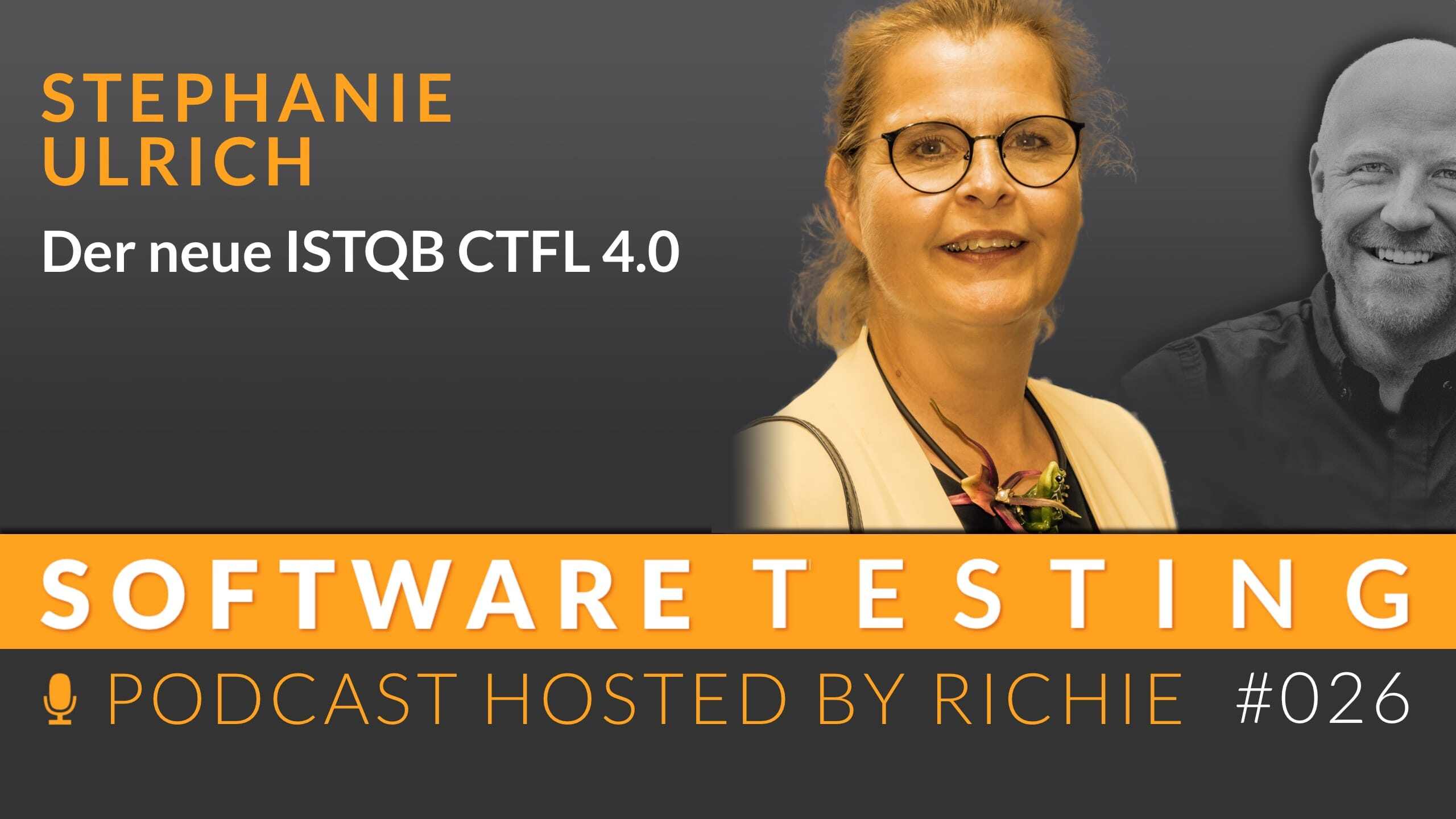The new ISTQB CTFL 4.0
The ISTQB certification “Certified Tester Foundation Level” (CTFL) teaches the basics that a tester needs. Over the years, however, the world of work...

In this episode, we talked about what skills a tester needs nowadays and how the job description of a tester has changed in recent years. How the way of working in testing has changed, especially through agile methods. Also when which skills are needed in the development process. Finally, we gave tips on how testers can plan their career and which resources can help them.
“Of course it’s all in the team at first, but over time we’ve learned that sometimes the team is too small, sometimes it doesn’t have all the skills it needs, and sometimes the product is too big that you can’t get by with just one team.” - Jörn Münzel
Steffen Schild, an agile testing enthusiast with experience in numerous industries, founded a testing department and initiated the knowledge exchange platform “TeaTime”. He specializes in topics such as agile testing, test automation and teamwork. Since 2018, he has been passing on his expertise as an ISTQB trainer for Certified Tester certifications.
Jörn Münzel has over 35 years of professional experience in software development, quality assurance and testing. His experience ranges from programming, testing and test automation to project management in the telecommunications and financial sectors. Over the last 15 years, his focus has been on testing and QA, with an emphasis on test improvement and test management of banking applications.
Highlights of this Episode:
Links:
In this podcast episode, we discuss the current challenges and changes in software testing with Joern Münzel and Steffen Schild. We shed light on the necessary skills that have developed through agile methods and give tips on career planning in testing.
Steffen first reported on the current challenges in the industry. He emphasized that testing itself has not changed, but the way of working has. Teamwork has become more important and agile methods are now standard. These new requirements have led to a revised understanding of testing itself. Jörn added to this and explained that the previous way of working, in which tests were carried out retrospectively, no longer works.
Joern went on to explain that testers often used to carry out their tasks in isolation. They received requirements and software to be tested from other departments and then reported back errors. Today, it is important that testers work closely with the team and develop a shared understanding of quality. This new understanding means that testers are no longer just responsible for finding errors, but are actively involved in preventing errors.
Richie talked about how agile methods have changed testing. In an agile environment, testers must constantly perform regression tests and automation is becoming more important. Jörn emphasized the need for new skills such as technical understanding and analytical skills. This is the only way to ensure that quality is maintained in an incremental development process. Steffen added that these changes also offer opportunities: Testers can receive further training in specific areas such as performance or security testing.
The German Testing Board has revised the job description for testers to reflect these changes. Instead of rigid roles, there are now flexible positions. This allows testers to take on different responsibilities depending on the project phase. Richie went on to explain how important this flexible model is in order to meet the requirements of modern development processes.
Finally, Jörn and Steffen gave valuable tips on career planning in the field of software testing. Jörn recommended creating a personal plan and regularly reviewing which skills you would like to deepen. Steffen emphasized the importance of active participation in the team and continuous training. Both emphasized that the German Testing Board offers helpful resources, including the revised job description as a document on their homepage.

The ISTQB certification “Certified Tester Foundation Level” (CTFL) teaches the basics that a tester needs. Over the years, however, the world of work...

In this special summer episode, I’ve answered some of the most frequently asked questions you’ve sent me over the last few months. For example, what...

“So, we don’t need testers anymore, because we work agile now!” That was the impetus for writing the first edition of“Agile Testing”more than 10...